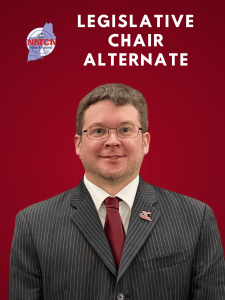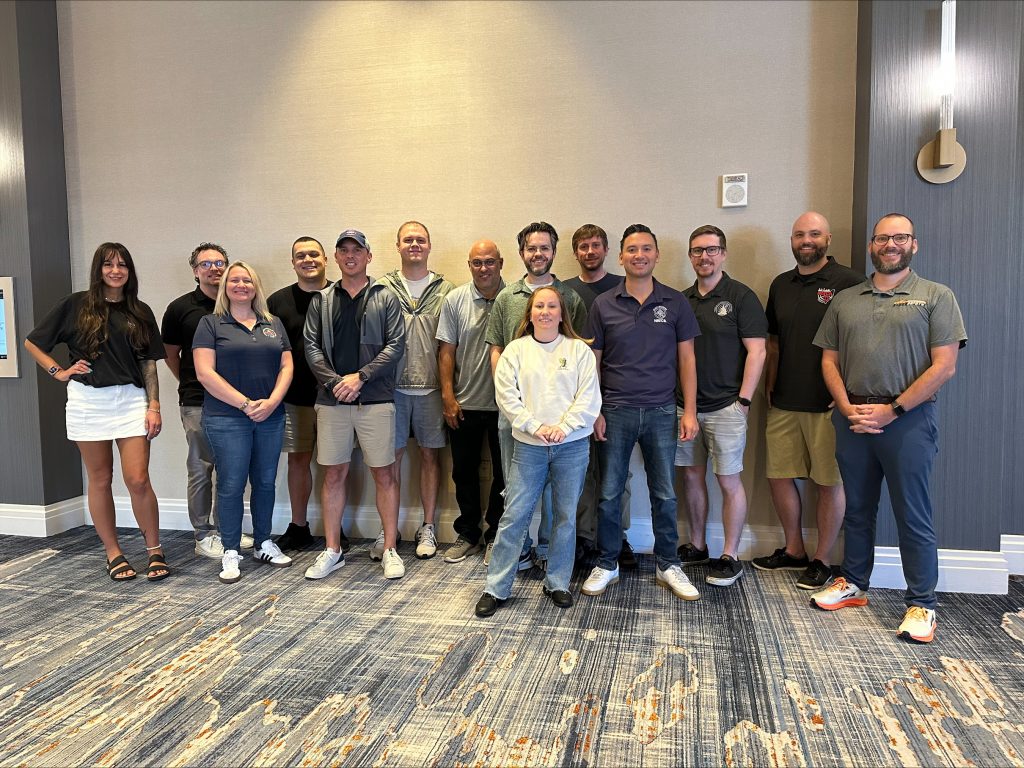
July 1st, 2024 New England Bi-Monthly Regional Update
From Steve Brown, NATCA New England Regional ARVP

Hello, New England! I hope the official start of summer has been well met for all of you!
With the changes to NCEPT and recent focus on hiring by the FAA, an influx of trainees has taken shape in our region. With that, it sometimes falls to us as OJTIs, co-workers, and leaders to hold management accountable in striving for the successful completion of training. Overall, our region has seen a decrease in Training Review Boards (TRBs), and the ones that happen often end with buildings giving every opportunity for the successful certification to those in training; however, some simple things continue to be overlooked. I’ll touch on a few here for your awareness.
Did you know?
-The Training Team lead (supervisor) MUST do the following:
- Select the OJTIs
- Review ALL aspects of the training plan with Training Team
- Provide the OJT Checklist to the trainee at the first Training Team meeting
- Review ALL training documentation
- Designate IN WRITING an OS/STMC to act as Training Team Lead during a temporary or extended absence
-Training Team Meetings have requirements:
- They are to take place once per month
- They shall touch on strengths, weakness, and specific recommendations to improve performance
- They must include discussions regarding Performance Assessments, and Certification Skill Checks
-OJTIs (trainers) MUST:
- Provide performance feedback, verbally and in writing by the end of shift on which OJT occurred (Your supervisor shall allow enough time for this to take place)
- Complete the OJT Checklist
Chapter 6 of the 3210.4 is a short read and goes over all aspects of OJT for Air Traffic Control Specialists. If you are an OJTI, I would implore you to take a look when you have some time in order to make sure things are happening as they should in your building/area. If not, please do not be afraid to speak up and ask questions. Talk to your reps, or Jake, Kevin, or me.
Most importantly, don’t forget that burnout is a thing. There’s a reason we are paid more to conduct training. It’s difficult, important work. If you need a break, tell somebody, and if anyone gives you a problem with that, let a rep know, and we’ll take care of it.
Thank you for all you’re doing. Be safe this 4th of July.
Legislative
From Jamie Green, NATCA New England Legislative Chair, PVD

The House and Senate were scheduled to be in recess this week. However, on July 29, House Leaders notified members that the House would be called into session this week and could vote as early as 9:00 am on Wednesday, July 2, on the One Big Beautiful Bill (HR1). The House Rules Committee will meet Tuesday to consider floor process to consider HR1, with Final passage in the House later on Wednesday. The House would then resume recess and return to DC on Monday, July 7.
The Senate remained in session over the weekend and is expected to remain in session until the reconciliation vote is completed. After voting is complete, the Senate is scheduled to return to DC from recess on Monday, July 7.
All of the provisions that would have harmed federal employees’ benefits and rights, including union rights, have been removed from the Amendment in the Nature of a Substitute that will be the basis for the bill prior to other amendments being adopted. As of now, the list of amendments to be voted on has not been locked in yet.
The Senate will vote on a number of amendments that aim to support FAA modernization, ATC staffing, and aviation safety, including:
No. 2609 – allocates $3,000,000,000 for radar system replacement, the amendment designates at least $150,000,000 for aviation safety specialists.
No. 2610 – allocates $1,900,000,000 for traffic control centers, the amendment designates $900,000,000 for tower modernization and replacement, and $1,000,000,000 for TRACON modernization and replacement.
No. 2611 – replaces the Senate provisions with the ATC funding language passed by the House.
Appropriations: The House Appropriations Committee continues to move forward on FY2026 spending bills. House Appropriations Chairman, Rep. Tom Cole, stated his intentions to move Transportation, Housing & Urban Development (THUD), Commerce, Justice, Science (CJS), and Energy and Water Development (E&W) in July.
Senators started voting at 9:35am on Monday, and as of 7:45am this morning, they are still in session. At this time, only three of the over forty amendments have been passed. This situation is extremely fluid, and we will keep you updated with any developments.
Additionally, we continue to have rolling lobby weeks, member outreaches, and email campaigns. Please don’t hesitate to reach out if you have any questions.
From Tim Roig, NATCA New England Legislative Chair Alternate, Y90

Hi, my name is Tim Roig, and I am your new New England Legislative Alternate. I formerly served as Y90’s FacRep from February 2018 to January 2025, and since July 2023, I have represented our region on the Constitution Committee. Since 2020, I have also supported the New England Legislative Representatives as the PAC coordinator and point of contact.
As someone who was initially skeptical of the PAC and our legislative efforts, I have come to understand how essential they are in protecting our rights. Engaging all members of Congress (regardless of political affiliation) is not only a smart strategy, but the only viable one to ensure our survival.
I am honored to now serve New England in this new capacity as your Legislative Alternate. I want to thank our past two alternates, Nick Monahan and Matt Morgan, for their time, dedication, and understanding of the demands of this position.
OSHA
From Matt Murray, NATCA New England OSHA Rep, ZBW

Recently, we experienced a heat wave, and temperatures pushed over 100 degrees in some places here in New England. During that heat wave, Boston Tower experienced an issue with their air conditioner system. The issue was quickly resolved, but I thought this would be a good time to talk about what happens when the HVAC system fails.
The HVAC system in all of our buildings controls the heating and cooling of our buildings. Officially, there is no standard for temperatures in our buildings, but we in the OSHA Committee push the agency to maintain a temperature between 68 and 82 degrees as referred to in the 3900.78, the Indoor Air Quality order.

So, in the case of Boston this year and Bedford a few years back, when the temps rise above 82 degrees, local reps should be working with managers to deal with the high heat. This could be extra break time, breaks more often to recuperate in a cool place, or in extreme situations, facility evacuation. Then I reached out to my management counterpart to ensure that Tech Ops is addressing the issue and mitigating the situation. This could be additional portable A/C units (or heaters in cold weather) until the HVAC is repaired, and getting a technician to make the repairs immediately.
Right now, the OSHA Committee is working to have realistic and definitive temperatures implemented in the new 3900.78 order when it comes out. This would mean that if the HVAC is broken and the temperatures fall to 65 degrees or lower (as an example), the facility would become ATC Zero, and the workers would be evacuated. The hard part about negotiating these numbers is that 60 degrees in New England is comfortable and 85 degrees is miserable. Whereas 85 degrees in Florida and Texas would be normal and acceptable to them.
We will see what we can work out in the future. As always, if you have questions or see an issue in your building, do not hesitate to contact me at [email protected].
Safety Advocacy Training
From Brian Nena, BOS Local Safety Council Member
I had the opportunity to attend Safety Advocacy Training this past week. During the class, we discussed many different ways to mitigate risk in the NAS through a three-step program. The first being a data collection process, which would include things like ATSAP, Confidential Information Sharing Program (CISP), Mandatory Occurrence Reports (MORs), Preliminary ARIA Reports (PAR), and Quality Control Operational Skills Assessments (QC OSAs). Secondly, a data analysis process, which includes Event Review Committee (ERC), Barrier Analysis Review (BAR), QC Service Reviews (SSR, TMR, CER, SYSIR), Safety Risk Management Panels (SRMP), and Partnership for Safety (PFS). Lastly, a corrective action process, which includes ATSAP Corrective Action Requests (ATSAP CAR), Runway Safety Action Plan (RSAP), Quality Assurance Corrective Action Requests (QA CAR), Safety Management System (SMS), and both Facility and National Corrective Action Plans.

Not only did we dive deep into each of these processes and their individual benefits, but we talked a lot about our rights as a NATCA member to be present and involved in each one. As a member of the BOS Local Safety Council, this really helped me understand my role and responsibility to bring this knowledge back and implement it at my facility. Most importantly, I asked a lot of questions regarding ATSAP and how to effectively write them in order to see the results we are hoping for. The main takeaway is that the person reading your ATSAP is not from your facility, so you have to really spell out exactly what the problem is, how it affects the safety of the NAS, and how you would like to see the issue rectified. Though many times we get very emotional about situations, we tend to ATSAP, sticking to the facts and remaining objective and professional will produce the best results.
Overall, this class was a great experience and very eye-opening to many behind-the-scenes things that are constantly worked on to improve the safety of the NAS. I would highly recommend anyone to take this class, whether you’re involved in your LSC or not. The next class is October 6-7 in Las Vegas.
Announcements & Upcoming Events
How much do you know about your union??
NATCA 101 is an engaging and interactive learning course designed to give members a solid foundation in understanding NATCA’s mission and operations. Building a basic understanding of our Union and then enhancing it with personal involvement are crucial steps toward a stronger local, a more influential national Union, and a better future for your family.
Join the NATCA Reloaded Committee for this month’s course on Thursday, July 15 at 11:00am ET. Sign up on the NATCA Portal at https://portal.natca.org/Default.aspx


NATCA New England prides itself on its communication with its members. We want to bring the information to where our members are, and many of them are on Discord! So, we’ve developed a Discord server for our region.
Click here to join our server!
Upon requesting to join, New England members will be prompted to submit their full name, facility, and NATCA member number.
Planning to go to this year’s Communicating for Safety? Registration is open!
Join NATCA and industry leaders September 15-17 at The Horseshoe Las Vegas for three days focused on innovation, modernization, and collaboration. CFS brings together the safety professionals shaping the future of the National Airspace System. Don’t miss out on early bird pricing and secure your spot today to be part of the conversations driving aviation safety forward.
For more information about CFS and to register, visit https://www.natca.org/events/cfs/


